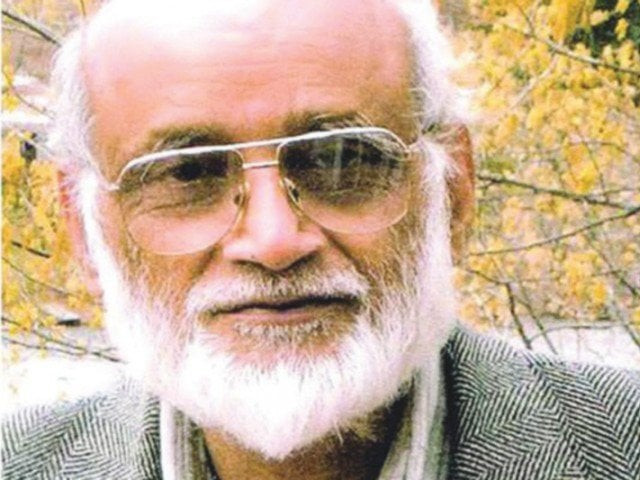Inextricably linked: ‘Pakistan has taken lead in curbing minorities’ rights’
Scholar says Second Amendment strengthened hand of communal elements

Author C M Naim.
The state of religious minorities in both India and Pakistan is far from satisfactory but Pakistan has been taking the lead in curbing their liberties, American scholar CM Naim said while speaking exclusively to The Express Tribune.
Naim said talking about the minorities in one of these countries without referencing those in the other was virtually impossible as the fortunes of both were interlinked. He said just as the Muslims constituted a majority in Pakistan and a minority in India, the Hindus were in majority in India and a minority in Pakistan. The scholar said whatever befell Muslims in India had ramifications across the border.
However, he said, Pakistan had taken the lead in curbing minorities’ rights. Naim said the nation’s parliament had taken decisions that were better suited to muftis. He said no such example could be seen in India. While minorities were targeted in India, Naim said, the victimisation of no minority had constitutional sanction there. The scholar said all minorities in India were capable of making their voice heard due to their sheer numbers. He said something like this could not happen in Pakistan due to their negligible number.
Naim said some non-Muslim organisations had also raised their voice for the rights of Muslims in India. He said the converse of this could not be true in Pakistan. The scholar said former Salmaan Taseer had been assassinated for supporting a beleaguered Christian woman. Naim said this did not mean that the majority had been rendered completely silent in Pakistan as the nation could count some extremely intrepid voices among its ranks. He expressed hope that more of such forces would emerge in the future.
The scholar said that while Muslims constituted a minority in India, they were further divided along other lines. He said reservations of various kinds had stoked controversy in the community. Naim said this was so as the elite had been accused of capturing all the privileges at the common man’s expense. He said the elite were in a strong position as they had co-opted religious scholars. He said religiosity had taken a peculiar form in Pakistan where one had to be certified to have their Muslim credentials authenticated. Naim said Muslims often had to introduce themselves with reference to their maktabs in the nation. He said often the followers of one school of thought were denied entry to a mosque of another.
Naim said the Tablighi Jamaat had played a pivotal role in masculinising Islam in the subcontinent. He said by curtailing the role of women to just teaching Islam to children, it had reserved a central role for men when it came to religious instruction. Naim said men tended to get influenced by one particular cleric whose beliefs they also foisted on their families.
Shedding light on communalism in Pakistan, he stressed the need for sustained action to remedy it. He said the curriculum, soap operas, provocative public speeches and court verdicts had all contributed to making Pakistani society intolerant over time. Naim said only durable policies could overcome this challenge. He said governments could take decisive action in this regard but desisted from doing so due to leaders’ personal interests.
Naim said former president Ayub Khan had strongly resisted the anti-Ahmadiyya movement but former prime minister Zulfikar Ali Bhutto had given in to it to salvage his political career. He said the decision of the parliament (to constitutionally ostracise the Jamaat-i-Ahmadiyya) had strengthened the hand of communal elements. He said the possibility of similar measures being introduced against other religious denominations could not be ruled out. The scholar concluded the interview by expressing his desire to seeing an era wherein the people agreed on restricting religion to the personal, employing it for personal moral uplift and eschewing its use to influence others.
Published in The Express Tribune, February 24th, 2016.



















COMMENTS
Comments are moderated and generally will be posted if they are on-topic and not abusive.
For more information, please see our Comments FAQ